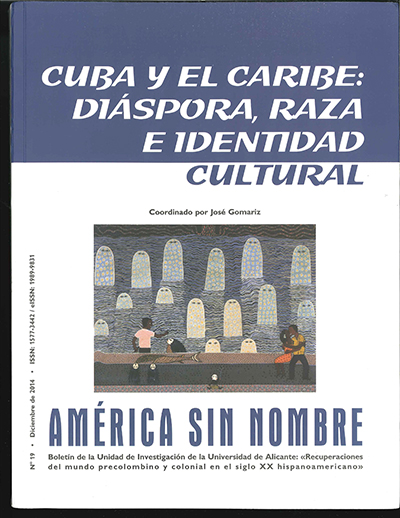 Professor Adriana Méndez Rodenas of the Department of Spanish & Portuguese has published an article titled, “El abolicionismo transnacional cubano: los relatos antiesclavistas de Félix Tanco y ‘el tiempo de la nación,'” in “Cuba y el Caribe: Diáspora, raza e identidad cultural,” América sin nombre, no. 19 (December 2014), 61-72. This issue of América sin nombre, a journal published by the Universidad de Alicante in Spain, studies the African diaspora in Cuba and the Caribbean and features articles, creative writing, and essays on architecture and the arts.
Professor Adriana Méndez Rodenas of the Department of Spanish & Portuguese has published an article titled, “El abolicionismo transnacional cubano: los relatos antiesclavistas de Félix Tanco y ‘el tiempo de la nación,'” in “Cuba y el Caribe: Diáspora, raza e identidad cultural,” América sin nombre, no. 19 (December 2014), 61-72. This issue of América sin nombre, a journal published by the Universidad de Alicante in Spain, studies the African diaspora in Cuba and the Caribbean and features articles, creative writing, and essays on architecture and the arts.
Méndez Rodenas joined the UI faculty in 1985. She specializes in nineteenth and twentieth century Latin American literature. In addition to her latest published article, her essays on Cuban-American literature have appeared in two interdisciplinary anthologies: Negotiating Identities in Art and Literature: Cuban Americans and American Culture (2009) and Cuba—Idea of a Nation Displaced (2007). Recently, she served as faculty representative for two inaugural trips to Cuba sponsored by Iowa Voyagers for the UI Alumni Association.
The Department of Spanish & Portuguese is part of the Division of World Languages, Literatures & Cultures in the University of Iowa College of Liberal Arts & Sciences.